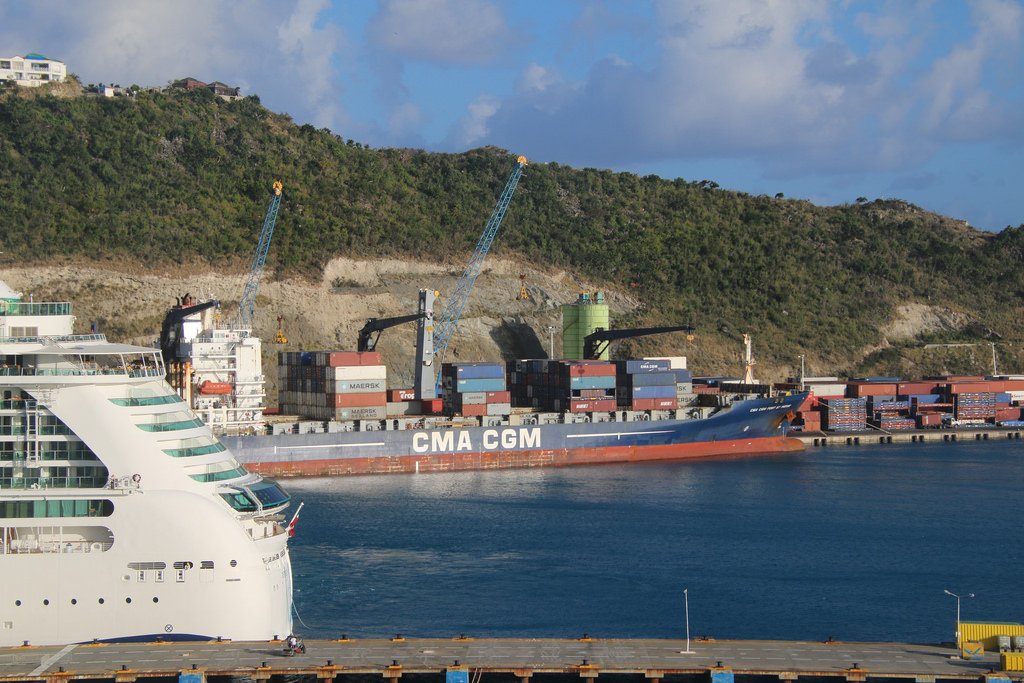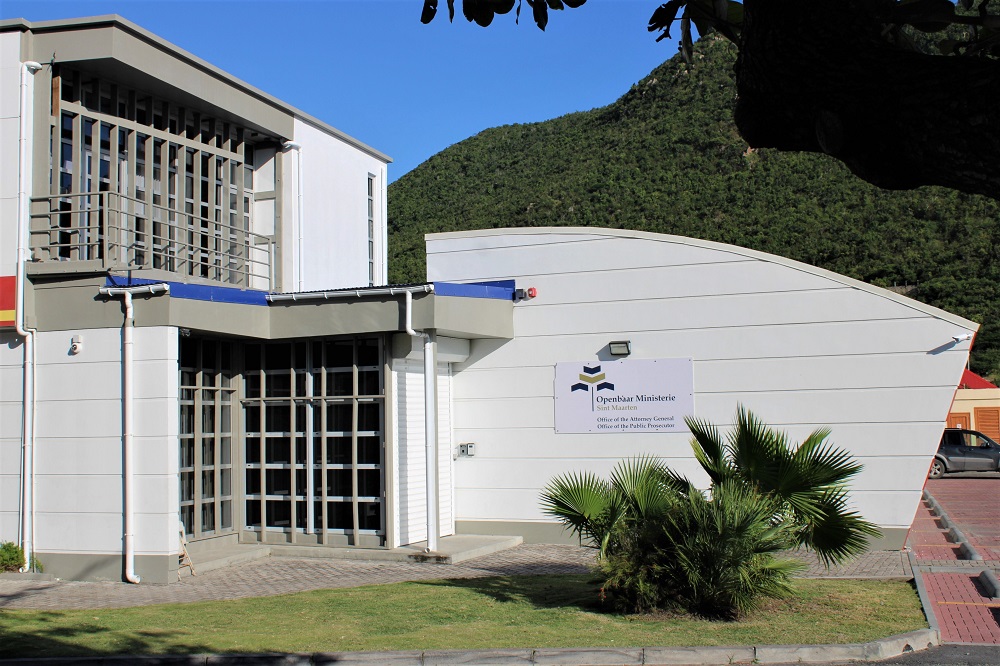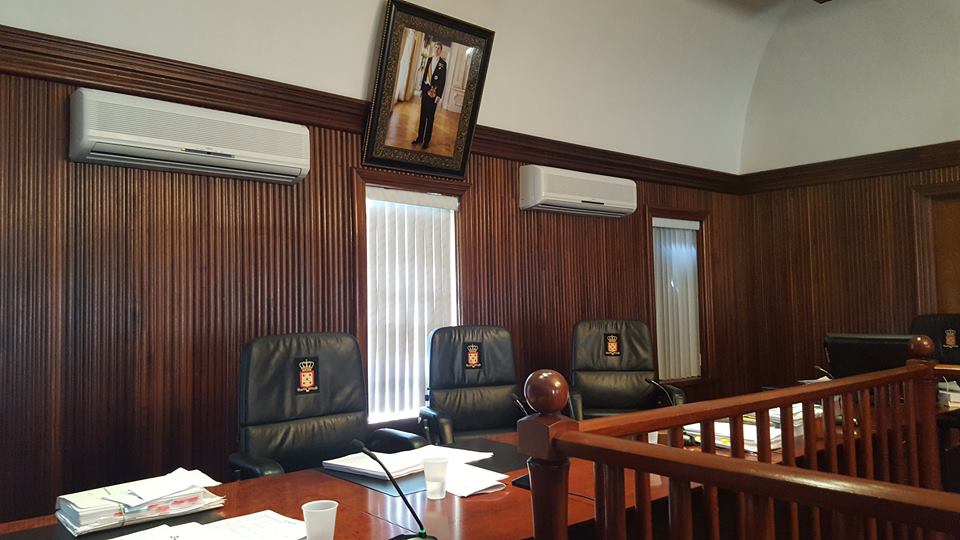Supreme Court puts civil inquiry at harbor companies to rest

PHILIPSBURG — The Supreme Court has firmly closed the door on a request from the Public Prosecutor’s Office to order a civil inquiry into the St. Maarten Harbor Holding company and twelve associated businesses. The Common Court of Justice denied the request in a ruling dated December 11, 2020, and the Prosecutor’s Office went to the Supreme Court to challenge this decision in cassation.
The prosecutor’s office wanted clarity about the causes of shortcomings in the way the port companies were conducting their business and about structural remedies to prevent future abuse. “How can it be prevented that another stooge of a powerful politician takes the helm and is able to exercise dominant influence on the harbor’s business and policy decisions?” the prosecutor’s office stated at the time in its request.
But the Common Court ruled that ordering a civil inquiry was “not opportune,” considering improvements the harbor implemented during the procedure and after weighing the interests of both parties. The Supreme Court arrived at the same conclusion in its ruling dated November18.
 The court also rejected the incidental cassation appeal former port-director Mark Mingo filed at the suggestion of his attorney Cor Merx.
The court also rejected the incidental cassation appeal former port-director Mark Mingo filed at the suggestion of his attorney Cor Merx.
The civil inquiry-saga began more than seven years ago, on July 8, 2015, when the public prosecutor’s office asked the harbor holding for information, based on doubts about the functioning and the integrity of the company. On July 20, the prosecutor’s office expressed its objections against the harbor’s policy in a letter to the board of supervisory directors. Their reaction was deemed unsatisfactory, which is why the prosecutors asked the court to order an investigation into the goings on at the harbor from January 1, 2009, forward. It also asked about interim measures, like the suspension of director Mingo and the supervisory directors and the temporary replacement of these people.
What were again the concerns that inspired the prosecutor’s office to ask for a civil inquiry?
First, the corporate governance at the harbor holding did not meet the requirements established in its articles of incorporation and in the country’s corporate governance code.
In 2012 the shareholder (the government) asked members of the supervisory board without any justification to resign. They were replaced by three instead of the required five others, while the required expertise within the board had been inadequate for years. Management structurally withheld information from the supervisory board while management (at the instruction of the shareholder) took measures without the required approval from the supervisory board.
Lastly, the prosecutor; office argued, the harbor failed to establish the annual report and the annual financial account within six months after the end of the fiscal year in a general shareholders meeting.

And that was not all. The prosecutor’s office questioned why the harbor had attracted a $50 million loan for the construction of the causeway bridge. It also had its doubts about granting the project to Volker Stevin International and about the price of the bridge. The holding did not answer questions about these issues. The prosecutor’s office furthermore wondered what possible interest the harbor had in the construction of the bridge.
Next: the purchase of a harbor crane, financed through the Panamese company Octavio, where the brother of the chairman of the board of supervisory directors just happened to be a manager. “Why didn’t the harbor finance this purchase from its own assets?” the prosecutors wondered.
Another issue was the irresponsible sublease of land to project developer Zebec. “This has cost the community at least $10 million.”
The final peeve in the prosecutor’s list was the matter of forged and inflated invoices the harbor paid starting in 2013. These invoices were signed for payment by director Mingo. This scheme cost the harbor up to July 2017 at least $7 million. Later the prosecutor’s office upped this amount to $12 million.
In its first interim decision, the court suspended director Mingo but it delayed other decisions because “the request for the civil inquiry had already had a partial effect.”
Those effects were Mingo’s suspension, the appointment of two new statutory managers, the expansion of the supervisory board to five members and the implementation of a whistleblowers regulation.

With the appeals court, the Supreme Court agreed that there were solid reasons to doubt that the harbor used correct policies and that it did business in an appropriate manner. The holding argued against granting a civil inquiry, saying that it would be expensive and that it would take a lot of time away from their managers. Furthermore, the holding announced its preparedness to initiate its own investigations and to take measures in consultation with the prosecutor’s office.
In a second interim ruling it became clear that the prosecutor’s office insisted on the civil inquiry, while the harbor holding, Country St. Maarten and the supervisory board resisted, arguing that measures had been taken and that they were awaiting the outcome of criminal investigations. “The disadvantages do not outweigh the advantages,” they told the court.
In its final decision, the appeals court rejected the request for a civil inquiry. Mingo had been fired, two new managers had been appointed, the supervisory board was complete, a whistleblower’s regulation had been implemented and the harbor had appointed a legal and compliance officer as well as an Ombudsman. The port was also in the process of recouping financial damages, while there was a payment from their insurance company on the horizon.
The appeals court stated in its rejection that the interest of the harbor company relatively carries a lot of weight and that the court has a discretionary authority to take a decision about the request. “Because of the improvements there are currently no solid reasons to doubt correct policy. There is no indication that there are more rotten apples within the company, other than director Mingo. (The ruling does not mention Mingo by name but refers to him as stakeholder 22). In the meantime, Mingo has been acquitted of all charges against him.
The appeals court had yet another reason to reject the inquiry-request: “We are less optimistic than the prosecutor’s office that the three researchers will find a panacea, or that their findings will lead to meaningful measures.”
At the Supreme Court, the prosecutor’s office contested the court-ruling that an inquiry is not opportune and that the interests of the harbor holding carry more weight that their own. “The ruling by the Common Court is incomprehensible because measures have not resulted in transparency.”
 The Supreme Court notes in its ruling that the Common Court apparently has concluded that the lack of transparency is a good reason to doubt that the company is doing business in an appropriate manner. “That the Common Court currently has no reason for such doubts refers only to the fact that the harbor has put a stop to inadequate corporate governance and that it is busy taking measures to correct mistakes from the past and to recoup damages.”
The Supreme Court notes in its ruling that the Common Court apparently has concluded that the lack of transparency is a good reason to doubt that the company is doing business in an appropriate manner. “That the Common Court currently has no reason for such doubts refers only to the fact that the harbor has put a stop to inadequate corporate governance and that it is busy taking measures to correct mistakes from the past and to recoup damages.”
The ruling furthermore notes, interestingly, that when St. Maarten introduced the right to inquiry it acknowledged that this could result in lengthy and expensive procedures that hinder the regular continuation of business activities and that most of the time it does not serve the interest of any party.


























